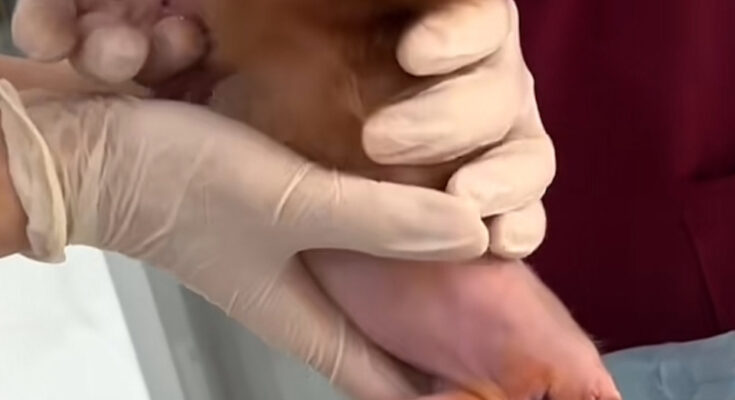When a baby monkey experiences a dog bite, it can be a stressful situation for both the animal and its caretaker. Monkeys, particularly infants, are delicate creatures, and a dog bite can lead to severe physical trauma as well as emotional stress. Immediate and appropriate action is crucial to ensure the monkey’s health, comfort, and safety during the recovery process. Below are important steps and considerations to take when caring for a baby monkey after a dog bite.
1. Assess the Bite for Severity
The first step in caring for any animal that has suffered a dog bite is to assess the severity of the injury. Examine the baby monkey’s wound closely. A dog bite can cause puncture wounds, deep lacerations, or even torn skin, and these injuries could become infected if not treated promptly.
-
Shallow bites: Minor wounds that might not require immediate medical attention, though cleaning and monitoring are still necessary.
-
Deep bites: If the bite is deep or the wound is large, there may be damage to underlying tissue or bones, and veterinary care is required immediately.
2. Control Bleeding and Clean the Wound
If there is active bleeding, apply gentle pressure using a clean cloth or gauze to help stop the bleeding. It’s important to stay calm and ensure the baby monkey is as comfortable as possible.
Once bleeding is under control, carefully clean the wound with warm, sterile water and mild antiseptic (e.g., iodine solution or chlorhexidine). Avoid using alcohol or hydrogen peroxide as they can be too harsh on sensitive skin.
3. Seek Veterinary Care Immediately
Even if the wound seems minor, it’s always a good idea to consult a veterinarian. Monkeys are at risk for infections such as tetanus, and dog bites can transmit diseases, including rabies or bacterial infections like Capnocytophaga.
-
Rabies concerns: Rabies is a fatal viral disease that can be transmitted through the saliva of an infected animal. If the dog that bit the monkey has not been vaccinated or its rabies status is unknown, immediate vaccination and treatment may be necessary.
-
Tetanus shots: A tetanus shot may be required, particularly if the bite is deep or has caused significant tissue damage.
4. Provide Pain Relief
In some cases, a baby monkey might experience significant pain following a dog bite. While it is essential to let a veterinarian prescribe any medication, you may be able to provide comfort in the meantime by keeping the monkey warm and calm. Creating a safe, quiet environment will help reduce stress, which can otherwise slow down the healing process.
5. Monitor for Infection
After the initial treatment, regular monitoring of the wound is necessary. Keep an eye out for any signs of infection, including swelling, redness, discharge, or an unpleasant odor from the wound. If any of these signs occur, contact your veterinarian immediately.
Infection can cause severe complications and may require further medical intervention, such as antibiotics.
6. Nutritional Support and Hydration
To support the baby monkey’s recovery, ensure it is eating and drinking enough. Malnutrition or dehydration can impede healing. If the monkey is very young and not nursing properly, you may need to provide a milk replacement formula specially designed for primates. Always consult a vet about the best type of formula.
If the monkey refuses to eat or drink, or if there are any signs of weakness, dehydration, or lethargy, it is essential to take immediate action.
7. Provide Emotional Support
A dog bite can be traumatic, especially for a baby monkey, who may experience stress and fear after such an event. Offer comfort by keeping it close, talking softly to it, and ensuring it feels secure in its environment. Gentle, positive interactions can help the monkey regain trust and recover emotionally.
8. Prevent Future Incidents
Once the baby monkey has recovered, it’s important to prevent future injuries. This may involve careful monitoring of its interactions with other animals, especially dogs. If the monkey is still learning how to interact with other animals, supervision is essential to ensure its safety.
Conclusion
Caring for a baby monkey after a dog bite involves swift action, proper medical treatment, and ongoing attention to its physical and emotional well-being. By taking the right steps, from wound care to providing the necessary veterinary treatment, you can ensure the monkey’s speedy recovery. Always remember, the health of the monkey is paramount, and when in doubt, consulting a professional is always the best course of action.



